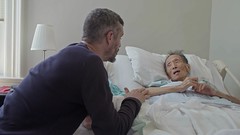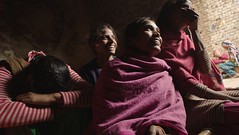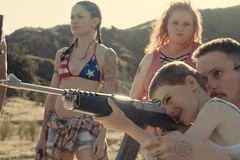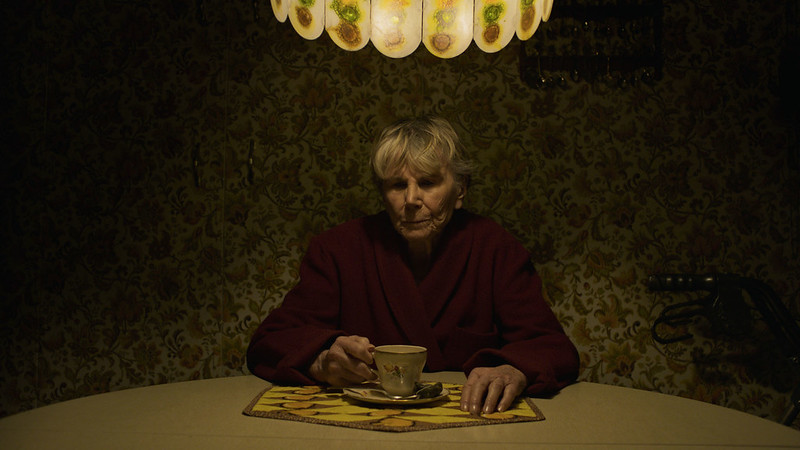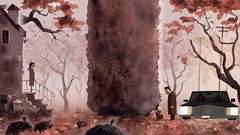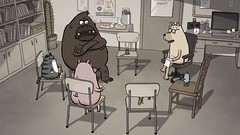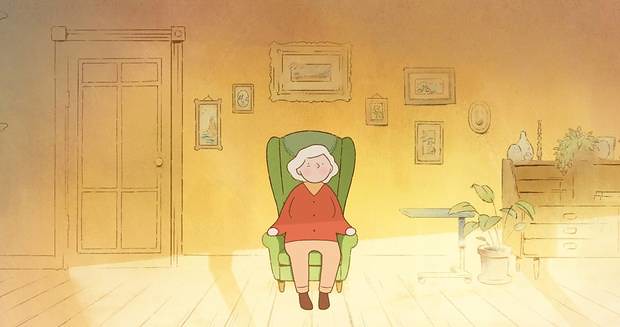STRANGE WAY OF LIFE / THE HUMAN VOICE
Directing: B+
Acting: B+
Writing: B-
Cinematography: B+
Editing: B
Here’s another development in the evolving state of the American film industry: right now, you can go see film shorts in the theater, where the shorts are the draw themselves as opposed to being shown ahead of another film—and they aren’t even part of the annual theatrical release of Oscar-nominated shorts, which typically happens in February. We are still months away from Oscar nominations. Although it is arguably relevant that this new Pedro Almodóvar film, Strange Way of Life, will almost certainly be among the five live-action shorts nominated for the next Academy Awards.
There are several reasons why this is a film you can, right now, book a ticket to see in a theater—this one, 31-minute film being the headliner, the title on the ticket. My theory is that the biggest reason would be that there just aren’t enough other releases to choose from, thanks to a constantly changing stew of changing viewing habits in a post-pandemic world (changes that were beginning before it but which the pandemic hastened), and the industry impact of dual strikes by the WGA and SAG-AFTRA in the past few months. People weren’t going to movies in droves already (Barbenheimer being the exception that proves the rule), and then studios started postponing high-profile release dates due to their stars being unable to promote the work.
Presumably, that left some holes in the showtime schedule at your local multiplex. Enter Almodóvar, who at the very least has a niche but devoted audience (this includes me). It doesn’t hurt that Strange Way of Life is a Western starring Pedro Pascal and Ethan Hawke as past lovers hooking up one last time. Or that the film opens with a young singer-guitarist crooning through one of the most beautiful pair of lips I have ever seen.
Evidently in an effort to make the outing worth the time and effort, this presentation is followed by another Almodóvar live-action short featuring a movie star, this one made in 2020 and starring Tilda Swinton: The Human Voice. This one is 30 minutes long, so, taken together, this “movie-going” outing has a runtime of a whopping 61 minutes, not counting the trailers at the top.
The thing is, it’s very difficult for film shorts to stack up to the best of feature filmmaking, even if it’s made by the likes of Pedro Almodóvar. I enjoyed both of this films, but I can’t say I would call them vital viewing. They were just an option at the movies by a writer-director I love.
Strange Way of Life certainly has the novelty of beloved stars playing gay characters, setting aside the now-longstanding discussion of straight actors taking gay parts away from gay actors. Maybe it makes a difference that Almodóvar himself is gay? Pascal and Hawke are lovely, believable, and nuanced. The story here is about much more than just old lovers reconnecting; it’s about why they are reconnecting: Silva’s son is suspected of killing Jake’s daughter-in-law, and Silva has returned in an effort to either defend or protect his family. This complicates matters between these two men in a way I’d be far more interested in seeing play out in a feature-length film, and I found the way this one ends to be strangely unresolved and abrupt.
There is also one flashback, to Silva and Jake’s younger, hornier days, and it features one of the oddest, and most manic, makeout sessions I have ever seen on film. First they are drinking wine literally getting poured onto their faces until they are drinking it out of each other’s mouths, and then they are jamming hands down the fronts of each other’s pants in ways that, let’s just say, don’t feel natural. It was very incongruous to the rest of the story.
Which is to say: both of these short films have their strengths and weaknesses. The Human Voice is mostly just Tilda Swinton, alone, in a home I suppose we are meant to accept as hers even though we see onscreen that it is built like a live stage set. She spends about eighty percent of the time talking to a recently-parted lover on the phone, gradually revealing herself to be mentally unstable, and we never hear the voice on the other line. I wasn’t super keen on this half-hour profile of a woman who is increasingly hysterical, if not sociopathic. But, Tilda Swinton’s performance is incredible, a solo tour de force. This film might be worth watching for her performance alone.
Taken together, Strange Way of Life and The Human Voice are imperfect but solid pieces, worth the time at the very least for Almodóvar fans.
A pleasant enough half hour to pass
Overall: B





































